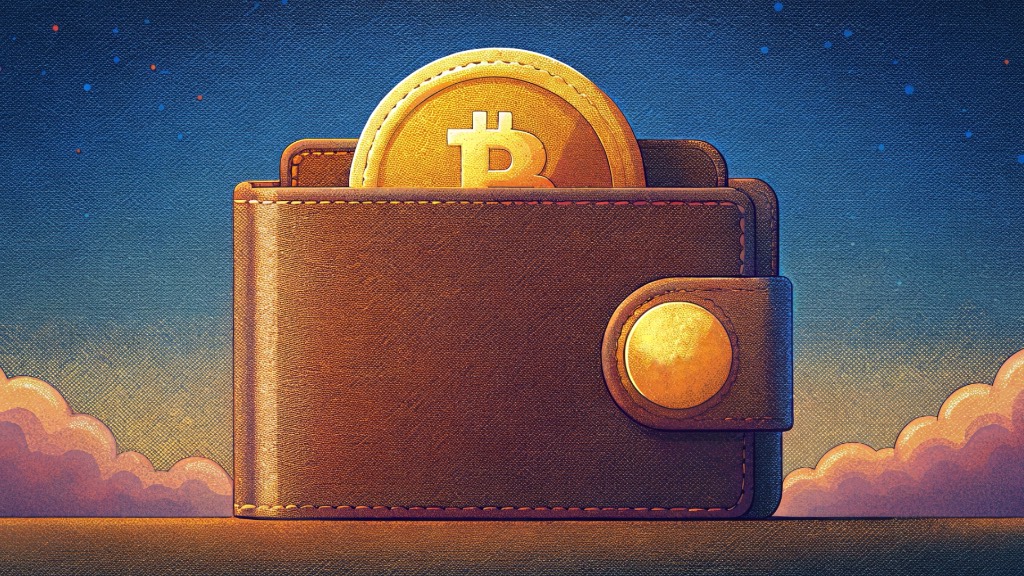
Understanding the Vital Role of Software, Hardware, and Paper Wallets in 2025
As cryptocurrency continues its march into the financial mainstream, understanding wallet technology is more important than ever for both new and seasoned investors. Crypto wallets are not just storage devices—they are your passport to the world of digital assets, a gateway to decentralized finance, and the frontline of your security strategy. With cyber threats and crypto adoption on the rise, knowing how different wallets work and why they matter is crucial for safeguarding your investments.
What exactly is a crypto wallet? Why does choosing the right wallet type matter so much? How can you match your storage methods to your risk tolerance and trading habits? This comprehensive guide dives deep into each wallet category, explains their advantages and risks, and provides practical advice for 2025’s digital landscape.
1. What Is a Crypto Wallet and Why Does It Matter?
A crypto wallet is a tool—digital or physical—that allows you to securely manage, send, receive, and store your cryptocurrencies. Contrary to popular belief, wallets do not hold “coins” inside them. Instead, they safeguard the cryptographic keys needed to access and control funds recorded on a blockchain.
The private key is the most critical component. Whoever holds it can authorize transfers from your crypto balances. Losing it is akin to losing the only key to an unbreakable safe. Therefore, your choice of wallet directly affects your asset security, ease of use, and ability to explore the wider crypto world.
Wallets also enable you to interact with exchanges, decentralized applications (dApps), and a growing ecosystem of blockchain-based services. For traders and investors, the right wallet streamlines daily activity and provides peace of mind against hacks or accidental loss.
2. Hot vs. Cold Wallets: The Security Spectrum
All wallet types fall into two broad categories: hot and cold.
- Hot wallets are connected to the internet. This makes them convenient for regular usage, instant trades, and interaction with Web3 platforms. However, the internet connection introduces potential vulnerabilities to hacking or malware.
- Cold wallets are completely offline, minimizing exposure to cyber threats. They are excellent for long-term storage but less suitable for frequent transactions.
Choosing between hot and cold wallets depends on your priorities: Do you need speed and flexibility, or do you require robust, long-term security?
3. Software Wallets: Versatile, User-Friendly Hot Storage
Software wallets are the most popular and accessible method for managing cryptocurrency. They are hot wallets, meaning they function online but in a variety of forms:
Mobile Wallets:
Installed as apps on your smartphone, mobile wallets offer a blend of security and convenience. They are ideal for making payments on the go or small, daily trades. Top examples in 2025 include Trust Wallet, Coinbase Wallet, and BRD.
Desktop Wallets:
These are programs you install on your computer. Desktop wallets like Exodus and Electrum grant full control over private keys and allow granular management of your portfolio, often including advanced analytics and support for multiple cryptocurrencies.
Web Wallets:
Accessed through web browsers, these wallets allow you to log in from any device. While they are user-friendly and require no installation, their proximity to the internet means extra diligence is required. Always verify the authenticity of web wallets to avoid phishing attacks.
Pros of Software Wallets:
- Quick, easy access to your funds for trading and transacting.
- Often feature-rich, with user interfaces tailored for different expertise levels.
- Simple backup options, like recovery phrases.
Cons:
- Connected to the internet and therefore vulnerable to hacks.
- The security level depends on your device’s software hygiene.
Best Practices:
Always use up-to-date wallets from reputable providers, enable biometric or 2FA security, and store backup seeds offline.
4. Hardware Wallets: The Gold Standard for Cold Storage
Hardware wallets lead the pack in crypto security. These specialized devices store your private keys in a secure, offline environment, dramatically reducing the risk of online attacks. Hardware wallets remain immune to malware and phishing as long as you never connect them to compromised computers or reveal recovery phrases.
- Popular Devices: Leading names include Ledger Nano series and Trezor models. Each offers security chips designed to thwart physical and virtual attacks.
- How They Work: You connect the device to your computer or phone only when you wish to sign transactions. The private keys never leave the hardware, keeping your holdings safe from remote threats.
- Advantages: Hardware wallets are perfect for “HODLing,” storing large sums, or serving as institutional-grade protection. Their tamper-resistant design appeals to anyone who places security above all else.
- Limitations:
- Typically more expensive than software options (expect $70–$200 per device).
- Slower for everyday transactions—best for storage, not active trading.
- Requires careful management of your backup recovery phrase.
Tip: Purchase hardware wallets only from authorized retailers to avoid counterfeits, and always verify the device’s authenticity before use.
5. Paper Wallets: Old-School Cold Storage
Paper wallets are a physical method of storing crypto keys. By simply printing out your private and public keys on paper, you create an offline record immune to hackers.
- How Paper Wallets Work: You transfer funds to a public address printed on the paper. To spend or access the crypto, you import the private key back into a hot wallet or compatible application.
- Advantages:
- No digital attack vector; perfect air-gapped security.
- Cost-effective (just the price of paper and ink).
- Challenges:
- Paper can degrade, burn, get lost, or be stolen if not stored securely.
- Not user-friendly, especially for regular transactions.
- Generating paper wallets safely requires a secure, offline computer.
Given easier and safer options, paper wallets are declining in popularity but are still sometimes used for deep-cold, long-term storage or as gifts.
6. Multi-Signature and Smart Contract Wallets: Advanced Security
For advanced users and organizations, multi-signature wallets and smart contract-based solutions add powerful features.
- Multi-Signature (Multi-sig) Wallets: Require two or more signatures to authorize transactions, reducing risks from a lost or compromised key.
- Smart Contract Wallets: Offer programmable functionalities, such as setting spending limits, customizing access permissions, or creating social recovery mechanisms.
As decentralized identity and institutional custody solutions mature, these wallet types are gaining popularity for businesses, decentralized organizations, and collaborative projects.
7. Choosing the Right Wallet for Your Needs
Selecting the right wallet requires balancing security, usability, and your individual investment strategy.
- For Beginners: Start with trusted mobile or desktop wallets to learn the basics. Store modest sums and experiment with transactions.
- For Active Traders: Web or mobile wallets enable fast trading, but prioritize platforms with a strong reputation and robust two-factor authentication.
- For Long-Term Investors: A hardware wallet or well-protected paper wallet is the most prudent option for larger holdings or assets that you do not plan to move regularly.
- For Teams or High Security: Explore multi-sig or smart contract wallets for group access or sophisticated management.
Whatever method you choose, remember that your private keys and recovery phrases are the ultimate gateway to your funds—never share them, and always back them up in multiple secure locations.
8. Practical Security Tips for All Wallet Types
Protecting your digital assets requires vigilance. Adhere to these universal best practices:
- Only download wallets from official sources and verify their legitimacy.
- Use complex, unique passwords and change them regularly.
- Keep device software patched and avoid using wallets on public or unsecured networks.
- Back up your recovery phrases and private keys physically, away from prying eyes or environmental hazards.
- Consider using password managers for secure password storage.
9. The Future of Crypto Wallets in 2025
Crypto wallet technology continues to evolve rapidly, responding to higher adoption, regulatory compliance needs, and user demand for convenience and security. Expect to see:
- Integration with biometric authentication, such as facial or fingerprint recognition.
- Enhanced user recovery options, enabling lost keys to be restored safely.
- Seamless connectivity across devices and decentralized applications.
- Regulatory advances requiring some wallet providers to meet new compliance standards.
Innovators are also working on wallets capable of supporting multiple blockchains, NFTs, and advanced DeFi features. These next-generation wallets promise to simplify user experience without sacrificing security.
Building Confidence with the Right Wallet Choice
Understanding wallets—their types, functions, and security implications—is foundational to anyone engaging with cryptocurrency in 2025. Whether you are buying your first Bitcoin, exploring decentralized finance, or storing assets for the long-term, your choice of wallet profoundly impacts both your confidence and your safety.
Take the time to evaluate your needs, stay informed about advancing wallet technology, and always follow best security practices. In a world where you are your own bank, investing in the right wallet knowledge is the first and most important step toward a secure and successful crypto journey.















